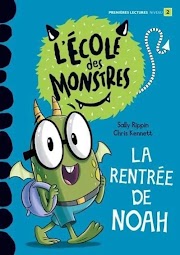Teachers & Digital Citizenship: Part 2
Starting with two apologies - one for this second part taking longer to finish than I'd hoped, due to a bad cold and other factors this week, and secondly because it's so long!
Teachers, it's time for us to get educated! Accept that it's part of your job to know about online etiquette and how to be an upstanding digital citizen, and to be passing correct information about copyright and digital resources on to your students!
Some of you might think it sure would be nice if this information was disseminated in a tidy, easy to consult format by school boards or districts, but I guess until a whole lot more of them are taken to court for lost revenues from certain resources, that won't happen.
Others dread that it might happen in this format. Self-directed professional development can be the best there is! You only need to spend time figuring out the answers to YOUR particular questions, and not listening to a one-hour-long presentation on something you already mostly knew, and have for years.
Canadian teachers ought to be familiar with this document called Copyright Matters made available in the summer of 2012 by the Councils of Ministers of Education, the Canadian Teachers' Federation and the Canadian School Boards Association.
American teachers might be interested in this free online course that I found out about from a blog-world acquaintance, Lorraine at Fabulous Fourth Grade Froggies. It's designed specifically for teachers to better understand copyright, and how it pertains to us from a U.S. perspective. The fact that it's rather involved and lengthy, requiring several hours per week over multiple weeks is an indicator that this IS a complicated area.
But that doesn't give us permission to just pretend such issues don't exist, and to disseminate erroneous information either through teacher to teacher communications or as role models with students watching out actions far more intently than we sometimes realize. In part 1 of this blog post, I included a couple of quotes from teachers (whose names I did NOT include, to give them some measure of anonymity rather than to take their words without permission) that I'd copied & pasted from facebook teacher groups over a period of time. I'd like to take a brief look at what's wrong with each.
One teacher suggested getting a copy of a novel or graphic novel out of the library and scanning it page by page to project in the classroom to save money. Clearly this would be depriving the publisher of their set price per copy for the print resource.
(Who's to blame for the teacher not having adequate current, engaging resources he or she needs for the number of students in the classroom?)
Another teacher offered to share a resource that was visible in a classroom photo. The teacher thought the set of posters/anchor charts were a freebie from TeachersPayTeachers and offered to share the resource by email. In this case, and in several others a lot like it, it turned out that the resource offered up was not a free resource, even if the teacher in question obtained it for free. In any case, in most situations, owning a copy of something (even legitimately, as in this instance) does not give you the right to distribute it to others.
(Who is responsible for tracking from where a resource originated?)
Two other quotes acknowledged the wink-wink nudge-nudge "sharing" of resources that as an accepted practice but one that we should engage in not too openly, to avoid getting ourselves into legal trouble. This cavalier attitude shows that it's more than just an issue of ignorance. (How should it become clear to teachers that such offences are to be taken seriously? Is this something for the College of Teachers to step in on, do we need employers - with whom we sign contracts often including morality and ethics clauses - to step in, or are we able to act as autonomous professionals?)
One of those quotes commented on how it's wrong to show DVD movies that we've purchased (or borrowed from the library) in class. Guess what? Here in Ontario at least, THAT is actually permitted!! It's against the rules to use a copy in the classroom, illegally obtained or even just backed up by yourself. But borrowing a copy from a friend or from the library or using something you have purchased
(This goes back to my very first point - teachers must have up-to-date, current information. The rules have changed significantly my friends!)
 To leave you with something tangible, here is a printable copy of a generic parent pledge and child pledge related to digital citizenship at DigitalCitizenship.net. I also offer up to you my version of a Teacher Pledge.
To leave you with something tangible, here is a printable copy of a generic parent pledge and child pledge related to digital citizenship at DigitalCitizenship.net. I also offer up to you my version of a Teacher Pledge.
Of course there's a WHOLE lot more to digital citizenship than just this one aspect. Maybe I'll write more on this topic in a series, but if so, only after a break. This has been a little tiring and more negative than I'd like, and honestly I'm still kind of holding my breath waiting for some backlash. I'm starting to suspect it might only be happening in staff rooms next to the photocopier and in semi-private wikispaces devoted to wholesale sharing of copyright resources.
Teachers, it's time for us to get educated! Accept that it's part of your job to know about online etiquette and how to be an upstanding digital citizen, and to be passing correct information about copyright and digital resources on to your students!
Some of you might think it sure would be nice if this information was disseminated in a tidy, easy to consult format by school boards or districts, but I guess until a whole lot more of them are taken to court for lost revenues from certain resources, that won't happen.
Others dread that it might happen in this format. Self-directed professional development can be the best there is! You only need to spend time figuring out the answers to YOUR particular questions, and not listening to a one-hour-long presentation on something you already mostly knew, and have for years.
Canadian teachers ought to be familiar with this document called Copyright Matters made available in the summer of 2012 by the Councils of Ministers of Education, the Canadian Teachers' Federation and the Canadian School Boards Association.
American teachers might be interested in this free online course that I found out about from a blog-world acquaintance, Lorraine at Fabulous Fourth Grade Froggies. It's designed specifically for teachers to better understand copyright, and how it pertains to us from a U.S. perspective. The fact that it's rather involved and lengthy, requiring several hours per week over multiple weeks is an indicator that this IS a complicated area.
But that doesn't give us permission to just pretend such issues don't exist, and to disseminate erroneous information either through teacher to teacher communications or as role models with students watching out actions far more intently than we sometimes realize. In part 1 of this blog post, I included a couple of quotes from teachers (whose names I did NOT include, to give them some measure of anonymity rather than to take their words without permission) that I'd copied & pasted from facebook teacher groups over a period of time. I'd like to take a brief look at what's wrong with each.
 |
| http://www.flickr.com/photos/ambernectar/ |
One teacher suggested getting a copy of a novel or graphic novel out of the library and scanning it page by page to project in the classroom to save money. Clearly this would be depriving the publisher of their set price per copy for the print resource.
(Who's to blame for the teacher not having adequate current, engaging resources he or she needs for the number of students in the classroom?)
Another teacher offered to share a resource that was visible in a classroom photo. The teacher thought the set of posters/anchor charts were a freebie from TeachersPayTeachers and offered to share the resource by email. In this case, and in several others a lot like it, it turned out that the resource offered up was not a free resource, even if the teacher in question obtained it for free. In any case, in most situations, owning a copy of something (even legitimately, as in this instance) does not give you the right to distribute it to others.
(Who is responsible for tracking from where a resource originated?)
Two other quotes acknowledged the wink-wink nudge-nudge "sharing" of resources that as an accepted practice but one that we should engage in not too openly, to avoid getting ourselves into legal trouble. This cavalier attitude shows that it's more than just an issue of ignorance. (How should it become clear to teachers that such offences are to be taken seriously? Is this something for the College of Teachers to step in on, do we need employers - with whom we sign contracts often including morality and ethics clauses - to step in, or are we able to act as autonomous professionals?)
One of those quotes commented on how it's wrong to show DVD movies that we've purchased (or borrowed from the library) in class. Guess what? Here in Ontario at least, THAT is actually permitted!! It's against the rules to use a copy in the classroom, illegally obtained or even just backed up by yourself. But borrowing a copy from a friend or from the library or using something you have purchased
(This goes back to my very first point - teachers must have up-to-date, current information. The rules have changed significantly my friends!)
My advice:
- Share LINKS to resources that you find online, not the resources themselves.
- Don't ask, offer, or take others up on their suggestions to share resources that you know or suspect are copyright-protected.
- Don't scan & upload books and other resources that you have in print form. This is quite commonly prohibited by the part of the copyright or terms of usage statement that generally says "...no part of this book may be reproduced, copied or transmitted in any form without express written permission from the publisher..."
- When in doubt, ask. Yes, you may come off as someone with a lot of nerve, but it doesn't hurt! And that's way better than appearing as an unethical person, in my opinion.
- Last but certainly NOT least... examine the reasons why teachers have engaged in this type of
piratingswapping andhoardinggathering, and let's start a discussion about how to best resolve those issues!
 To leave you with something tangible, here is a printable copy of a generic parent pledge and child pledge related to digital citizenship at DigitalCitizenship.net. I also offer up to you my version of a Teacher Pledge.
To leave you with something tangible, here is a printable copy of a generic parent pledge and child pledge related to digital citizenship at DigitalCitizenship.net. I also offer up to you my version of a Teacher Pledge. Of course there's a WHOLE lot more to digital citizenship than just this one aspect. Maybe I'll write more on this topic in a series, but if so, only after a break. This has been a little tiring and more negative than I'd like, and honestly I'm still kind of holding my breath waiting for some backlash. I'm starting to suspect it might only be happening in staff rooms next to the photocopier and in semi-private wikispaces devoted to wholesale sharing of copyright resources.










